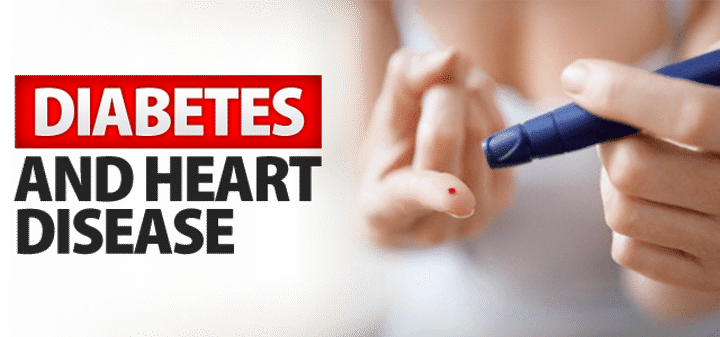Diabetes & Heart Disease!
Diabetes currently affects more than 62 million Indians, which is more than 7.1% of the adult population. The average age of onset is 42.5 years. Nearly 1 million Indians die due to diabetes every year.
According to the Indian Heart Association, India is projected to be home to 109 million individuals with diabetes by 2035. A study by the American Diabetes Association reports that India will see the greatest increase in people diagnosed with diabetes by 2030. The high incidence is attributed to a combination of genetic susceptibility plus adoption of a high-calorie, low-activity lifestyle by India's growing middle class. The age of onset of Type 2 Diabetes is falling and this condition is now not uncommon among children, adolescents, and young adults even at the age of ten.
At least 68 percent of people age 65 or older with diabetes die from some form of heart disease, and 16% die of stroke.
- Adults with diabetes are two to four times more likely to die from heart disease than adults without diabetes.
- The American Heart Association considers diabetes to be one of the seven major controllable risk factors for cardiovascular disease.
A close link exists between diabetes and cardiovascular disease (CVD), which is the most prevalent cause of morbidity and mortality in diabetic patients. People with diabetes, particularly Type 2 Diabetes, may have the following conditions that contribute to their risk for CVD
- High blood pressure (hypertension)
- Abnormal cholesterol and high triglycerides
- Obesity
- Lack of physical activity
- Poorly controlled blood sugars
- Smoking
Many studies have found biological mechanisms associated with DM that independently increase the risk of CVD in diabetic patients. Therefore, targeting CV risk factors in patients with diabetes is critical to minimize the long-term CV complications of the disease. Diabetes is treatable, but even when glucose levels are under control it greatly increases the risk of heart disease and stroke.
How does one know whether suffering from problems or not? Are the symptoms different than in the Non-Diabetic? Angina is chest pain or discomfort that occurs if your heart muscle doesn't get enough oxygen-rich blood. Angina may feel like pressure or squeezing in your chest. One may feel pain in the shoulders, arms, neck, jaw, or back. Angina pain often mimics the discomfort of indigestion. However, angina tends to get worse with activity and go away with rest. Emotional stress also can trigger this pain. In case of Myocardial Infarction, there is a complete blockage of one of the blood vessels supplying blood to heart muscle resulting in damage to the cardiac muscles. In this case, symptoms of angina persist with cold sweat, breathlessness & shortness of breath, fatigue, lightheadedness or sudden dizziness. Although the symptoms may vary from person to person.
Some people who have diabetes may have no signs or symptoms of heart disease and can witness a “silent” heart attack. Diabetes-related nerve damage that blunts pain reception and may explain why symptoms aren't noticed. Thus, people who are diabetic should undergo regular medical check-ups. Tests may reveal a problem much before they witness it. Early diagnosis and management can reduce or delay imminent complications.
40%-75% of individuals with diabetes and no overt signs of coronary artery disease (CAD) suffer from diastolic dysfunction, referred to as diabetic cardiomyopathy which is a result of failure of heart to relax completely after each contraction. This, in itself, may not present with symptoms in its early stages. However, later in progression one may have weakness, shortness of breath, a severe cough, fatigue, and swelling of the legs and feet.
Prevention is always better than cure. If you have high cholesterol, high blood pressure, or diabetes, you can take steps to lower your risk for heart disease. By living a healthy lifestyle, you can help keep your blood pressure, cholesterol and blood sugar in normal levels and lower your risk for heart disease and heart attack. A healthy lifestyle includes the following:



+1.svg)
